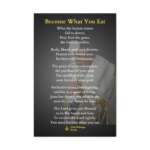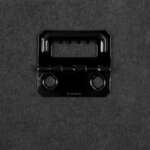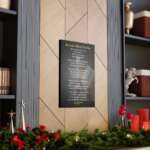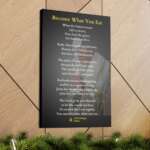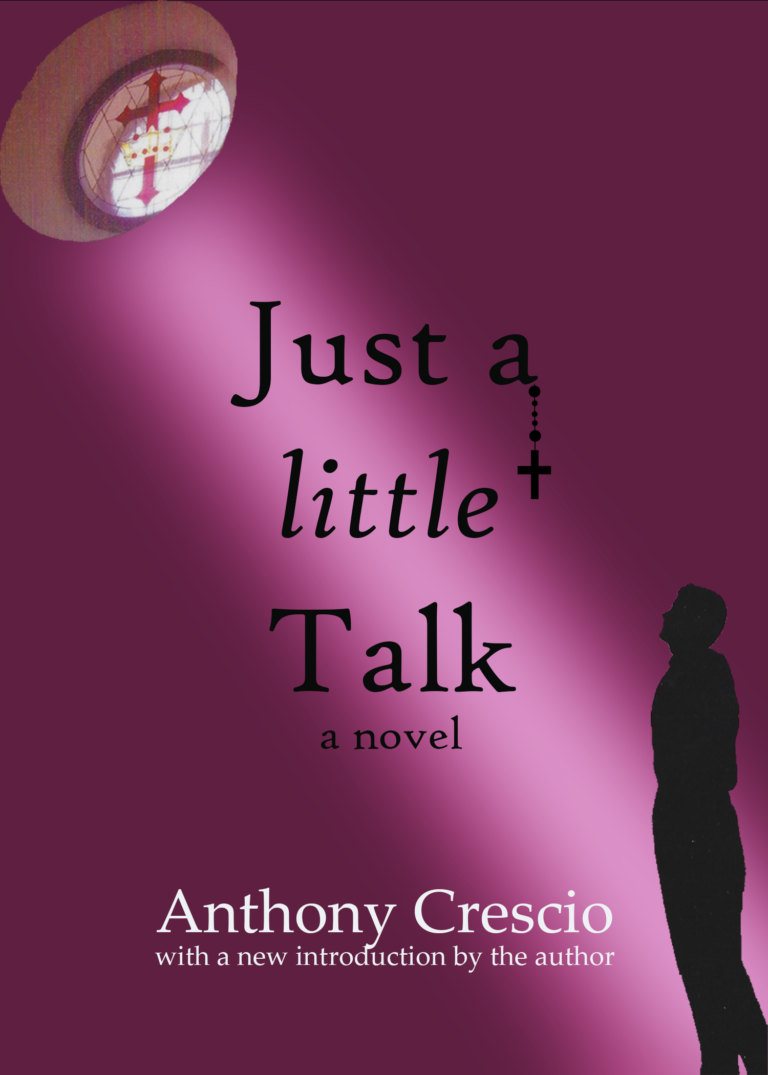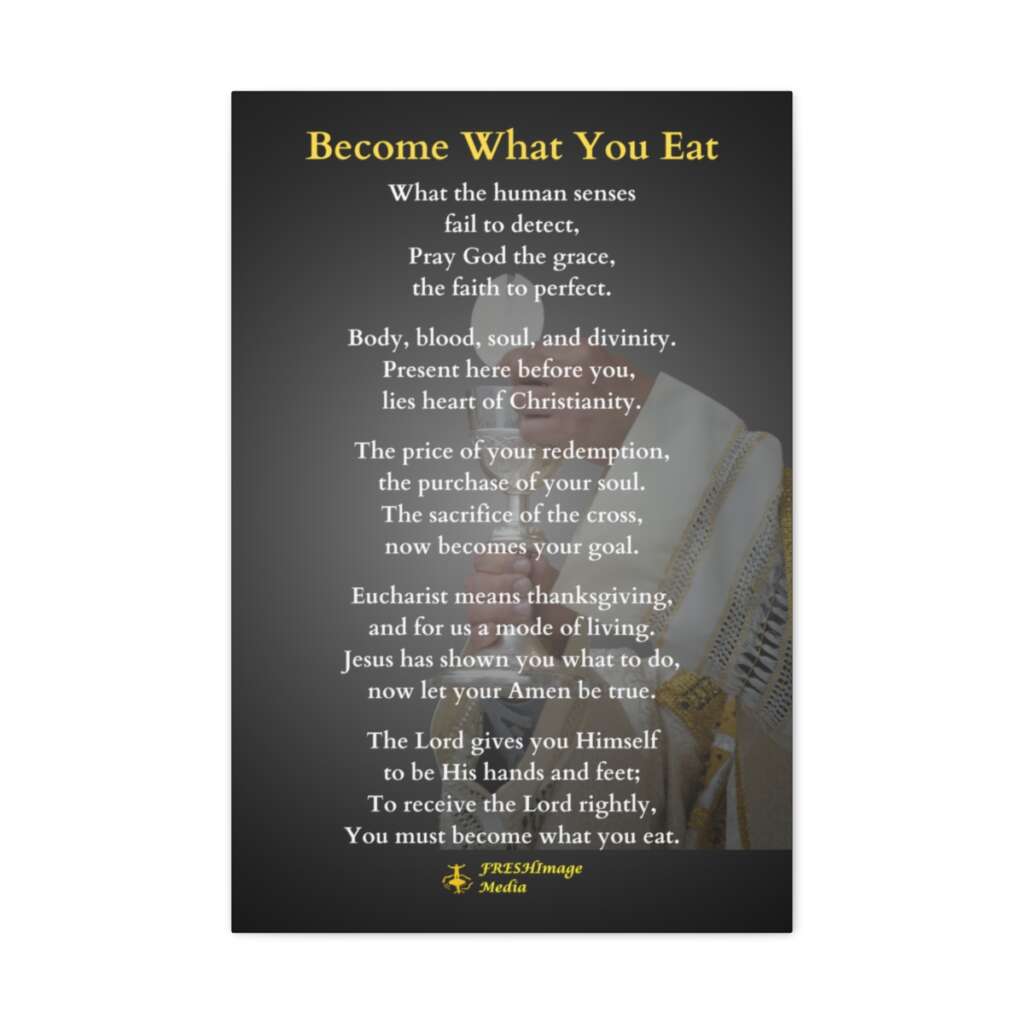
Product Information
This canvas features the Eucharistic poem, Become What You Eat. The poem was written by Anthony Crescio in honor of the ongoing Eucharistic revival taking place in the United States. Perfect for a First Communion gift, or to simply put in your home, office, classroom, or anywhere you want to remind people of the great mystery and gift of the Eucharist.
Poem is copyrighted material held by Anthony Crescio 2024 and cannot be reproduced without express, written consent.
.: Made with 100% cotton fabric, the perfect medium for printing highly-detailed and vibrant artwork.
.: Each canvas features 0.0135 inch (13.5 mil) thick fabric that weighs 400gsm making it a highly durable option for great prints that look gorgeous on the long run.
.: The closed MDF backing adds an extra layer of protection to all your prints.
.: NB! For indoor use only
Content of the Poem
The poem is doctrinal in nature, meaning, it is drawn from the teaching of the Church’s official Magisterium as well as from some of Her greatest theologians, who over the centuries have contributed to the development of Her Eucharistic doctrine.
The opening stanza draws from St. Thomas Aquinas’s Eucharistic Hymn, Pange Lingua, and more specifically the lines which read, Praestet fides supplementum, sensuum defectui (Faith for all defects supplying, When the feeble senses fail).
The second stanza contains the basic Eucharistic Doctrine that the whole of Christ is contained in the Eucharist, body, blood, soul, and divinity (see CCC, 1374), making the Eucharist the source and summit of the Christian Life (see Sacrosanctum Concilium, 10).
The third stanza speaks of the fact that the Eucharistic Liturgy makes the Paschal Mystery of Christ present to us so that we too might participate in it, offering ourselves together with Christ as members of His Body, the Church, to our Heavenly Father (see St. Augustine of Hippo, City of God, 10.3). Moreover, our participatory imitation in Christ’s sacrifice is not to remain confined to the Mass, but is to spill over and characterize the whole of our lives as Christians (see St. Augustine of Hippo, Sermon 228B).
The fourth stanza emphasizes the last point made in the third stanza. It begins by providing the etymological root of the word Eucharist, which, coming from the Greek eucharistia, means to give thanks or thanksgiving. For Christians, having the Eucharist as the source and summit of life means that we should strive to make the whole of our lives a thankful giving back to the Heavenly Father for the gift of salvation by imitating the complete self-gift of the only Begotten Son, Jesus Christ. We affirm this reality in our reception of the Eucharist by saying “Amen,” which means simply it is true, or I believe. The final line of the stanza is a paraphrase of St. Augustine of Hippo’s teaching in Sermon 227, where the Doctor of Grace teaches with respect to the Eucharist: “It is to what you are that you reply Amen, and by so replying you express your assent. What you hear, you see, is The body of Christ, and you answer, Amen. So be a member of the body of Christ, in order to make that Amen true.”
The final stanza of the poem is where it takes its title from. It is based on the Church’s teaching that in receiving the Eucharist, Christians are ever further incorporated into the Body of Christ, the Church. The great thinkers of the Church have often articulated this by describing what we might call the reverse digestion that takes place in our reception of the Eucharist. Meaning, rather than consuming Christ in receiving the Eucharist, we are consumed by Him, so as to be made members of His Body. St. Bonaventure describes this in his Breviloquium, writing, “This sacrament contains Christ’s true body and immaculate flesh in such a way that it penetrates our very being, unites us to one another, and transforms us into him.” We find this teaching articulated in a less striking but no less important way in the Catechism of the Catholic Church, paragraph 1396, writing simply, “the Eucharist makes the Church.”
Receiving the Eucharist rightly, therefore, does indeed demand that we allow ourselves to become what we eat by cooperating with Divine Grace so as to be ever more perfectly united to Christ and thereby ever more fully members of His Body, the Church.
Product Gallery
Related Products

